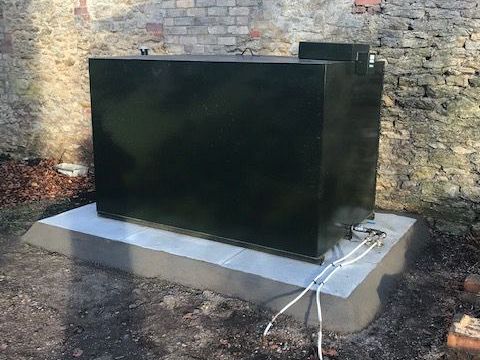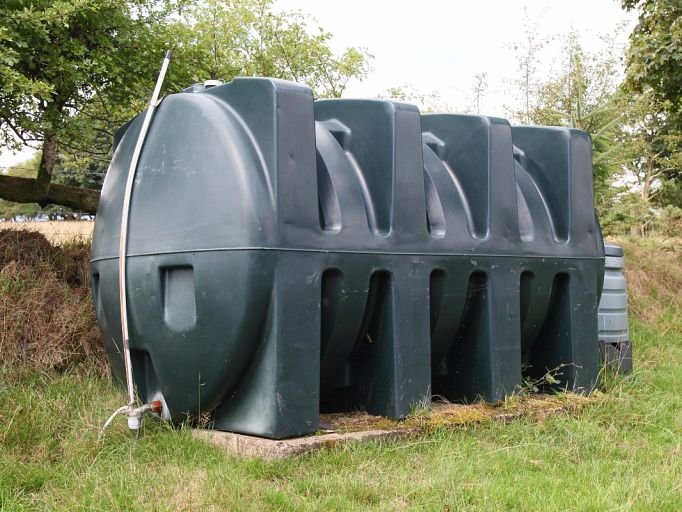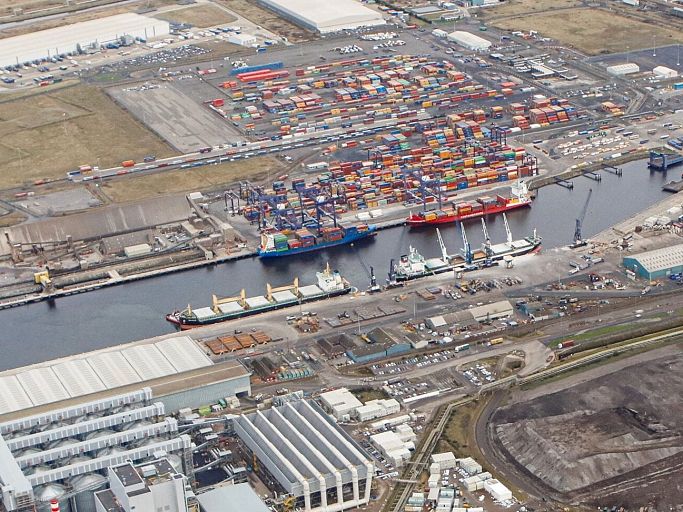Home / Blog / diesel and fuel / How to Protect Your Diesel Tank from Water Contamination
How to Protect Your Diesel Tank from Water Contamination
8th November 2022 in diesel and fuel

Contamination can be a serious issue for anyone who uses tanks to store their fuel, including diesel, whether they use domestic use storage tanks or commercial fuel tanks.
If water happens to penetrate a tank in some way it can compromise the integrity of the fuel within, degrading your supply. Hydrolysis reactions occur when diesel is exposed to excess water, causing darkened fuel which has gum, varnishes, and sludge within it. This will have the effect of reducing the performance of any vehicles, machinery or heating systems which rely on the fuel to a level way below what should be expected.
In this blog we’ll explain how you can take steps to keep your diesel tank (or any tank, in fact) safe from water contamination.
How does water contaminate diesel?
Diesel is, of course, liquid and so at a chemical level it contains at least some water. Although it is able to handle larger amounts of water within its make up than petrol (due to it being less refined) excessive amounts in diesel should be considered a contaminant and will cause problems.
Problems which can cause this contamination include condensation and tank leaks (due to faulty seals or even cracks). Too much water in diesel will go on to cause issues with the separator equipment in the fuel processing parts of vehicles. Erratic idling and performance, or momentary cut-outs during acceleration, are all indicators that your diesel has been severely compromised by contamination.
Diesel that contains water will cool the engine suddenly which will cause ineffectiveness and a reduction in its useful lifespan. Similarly, diesel with too much water in it is not good for other applications which use it, such as household or property heating systems and industrial machinery. Research suggests that around 25% of generator breakdowns are caused by contaminated fuel, not mechanical failure. Diesel with contamination levels of water in it is bad news!
How to I find out if my diesel is contaminated?
Fuels and water do separate, so making sure your diesel storage tank is drained routinely is a process that you should ensure as it will prevent water build up. However, it is possible to check whether there is free water within the tank. The most accurate way is to have a lab test the diesel, but this is, understandably, a totally impractical method for most people or businesses. It is possible to detect free water in the bottom of a diesel storage tank yourself with a very simple method - water detection paste and a dip stick. This will give you an instant ‘read out’ and allow you to see whether there is too much water in your tank.
How do I deal with contaminated diesel?
Believe it or not there are several approaches you can use to remove water, depending on how big the problem is. These methods include chemical additives to absorb water into the fuel, some form of water absorbing tool to remove water, a ‘fuel polishing’ operation to clean and filter the diesel (fixed installation or an on-site facility), often conducted at the same time as a manual tank clean.
How do I prevent water contamination in diesel storage tanks?
The best way to prevent any sort of problems with your storage tanks – including contamination – is to perform regular inspection and routine maintenance. Letting either of these things slide is likely to lead to a situation where possible contamination is more likely.
When your diesel tank is undergoing inspection, the things that should be looked out for are the tight fit of the cap, the integrity of the seals and any pipework and, of course, of the condition of the shell of the tank (for cracks or holes etc) – be it for steel diesel tanks, plastic diesel tanks or bunded fuel tanks. If there are any signs of a problem they should be corrected immediately with repairs, which will help ensure that water cannot contaminate the fuel supply. Tanks located above ground need to be sealed properly so that they are protected from water contamination in the form of rainfall.
At Tanks R Us we offer expertise in all aspects of fuel storage tank ownership and use – and we are happy to help you with any queries you might have. Simply get in touch with the team and we will talk!
One of the largest selections of tanks in the UK
Chat online or call us today on 01469 531229
Related Products
More Articles

How to Protect Your Diesel Tank from Water Contamination
8th November 2022 in diesel and fuel

Steel Tanks Vs Plastic Tanks
20th February 2023 in oil

Caring for your domestic oil tank: A maintenance guide
6th September 2023 in oil

Tank Hire: An Introduction and Case Study
3rd October 2023 in oil
Help
About Us
My Account
Newsletter Sign Up
Inspiration direct to your inbox, please enter your email below...
© Tanks R Us. All rights reserved. Registered in England. Registration number. 05804332. VAT number 364402764